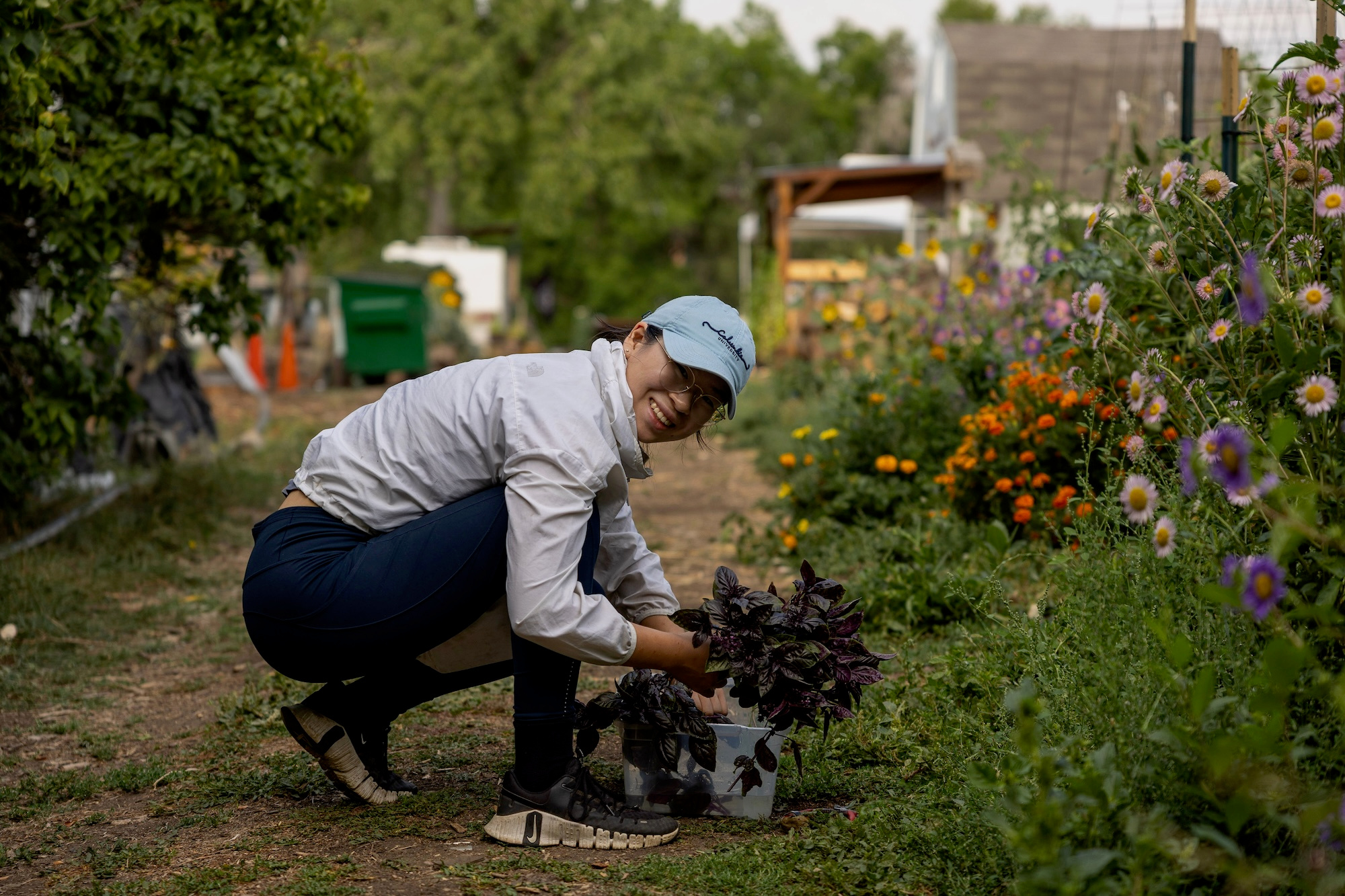I have definitely learned so much beyond what classrooms teach farming as. Hands-on skills like flipping the soil bed, preparing the bed for the next season, and crop rotation are just some to list that made me realize small-scale farming truly needs to operate on a long-term mindset. I needed to pick stemmed greens and herbs by hand rather than using scissors because if I'd cut through a plant cell, it would need energy to repair itself and would waste such energy that could've been used for growth; whereas if I snapped the leaf off using my fingers, it wouldn't tare through the plant cell and would enhance natural growth a lot.
One person who truly impacted me is another volunteer who just finished her masters in food and environmental sustainability in a neighboring college. She is about to work in a K-12 school near Boulder that has a "food garden", where she'll teach students to identify vegetables, recognize plant growth mechanisms, and simply how their food is put onto the table. I never knew educators can work in such a job. Upon hearing this job, I was so happy that more schools are raising children's awareness about food security, health, and the intricate interplay between humans and the environment. It seems like the communities in Colorado are more likely to be open towards unconventional experiments in education (and possibly so many other fields as well), which really made me re-think what it means to live within or work with a progressive community. That doesn't necessarily means good or bad; it just means the people within this community can be very different from the community I was used to.
Here is a photo of me picking herbs (3 types of basil):

(Sorry for the delay in posting!)
Please sign in
If you are a registered user on Laidlaw Scholars Network, please sign in